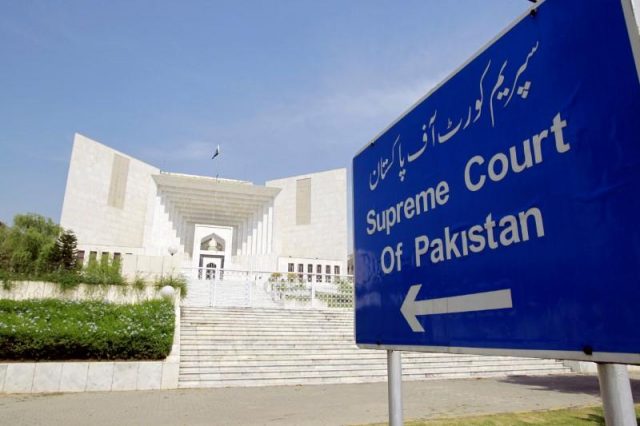ISLAMABAD: The Supreme Court (SC) on Monday issued notices to speakers of national and provincial assemblies, advocate generals and the Election Commission of Pakistan (ECP) over the presidential reference seeking its guidance on holding the Senate election through an open ballot.
A five-member larger bench of the apex court, headed by Chief Justice Gulzar Ahmed, and comprising Justice Mushir Alam, Justice Umar Ata Bandial, Justice Ijazul Ahsan and Justice Yahya Afridi, heard the reference.
The bench also ordered for a notice to be published for all those who are interested to join the court proceedings.
The apex bench asked all concerned parties to present a synopsis regarding their submission.
Justice Afridi asked AGP Khan to satisfy the court regarding the maintainability of the presidential reference. “Why should the SC jump into the controversy?” he asked.
Referring to the Charter of Democracy, in which political parties had agreed to end floor-crossing and corruption, Justice Ahsan asked the AGP why the government does not evolve a political consensus on the issue.
Justice Ahsan asked the AGP if he wants to know whether the Senate election should be held under the Constitution or law. He further inquired whether the method of National Assembly elections could also be changed through a simple law.
The hearing was adjourned till January 11.
The presidential reference was filed by Attorney General of Pakistan (AGP) Khalid Javed Khan, under Article 186 of the Constitution, invoking the court’s advisory jurisdiction.
The reference sought an interpretation of Article 226 that stated that all elections under the Constitution, other than those of the prime minister and chief ministers, shall be held through a secret ballot.
Article 186 of the Constitution states that “If, at any time, the President considers that it is desirable to obtain the opinion of the Supreme Court on any question of law which he considers of public importance, he may refer the question to the Supreme Court for consideration.
“The Supreme Court shall consider a question so referred and report its opinion on the question to the President,” the article further stated.
The presidential reference asks if the condition of ‘secret ballot’ referred to in Article 226, is applicable only to the polls held “under” the Constitution – such as the election to the office of the president, the National Assembly speaker and deputy speaker, the Senate chairman and deputy chairman and speakers and deputy speakers of the provincial assemblies – and not to “other elections”.
It described “other elections” as the election for the members of the Senate “held under the Elections Act, 2017, enacted pursuant to Article 222 read with Entry 41, Part 1, Fourth Schedule, which may be held by way of secret or open ballot, as may be provided for in the Election Act, 2017.”
The reference said this question of public importance had arisen in the context of “the malaise of vote buying” that has damaged the purity of elections. Every Senate election since 1985 had generated a debate followed by the commitment to reform and promise of open balloting.



































